MARGARET THATCHER AND SECTION 28
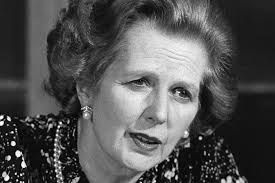
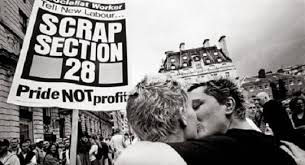
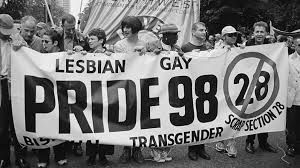

In 1988, Margaret Thatcher and her government passed Section 28. It prevented schools and councils from educating about LGBTQ+ history and culture.
Trigger warning - this page contains homophobic laws passed and the F - Slur
_jfif.jpg)
Section 28 was a local government act which was set in place in May 1988. It was enforced by the prime minister at the time, Margaret Thatcher, and her conservative government. It "prohibited the promotion of homosexuality by local authorities". This meant that local councils, organisations and even schools could not educate or promote any kind of LGBTQ+ education. It was a destructive attempt to silence LGBTQ+ people and raise another generation of bigotry. It was easily passed as at the time, 75% of the population thought that homosexuality was almost always wrong.
This was met with an uproar from the LGBTQ+ community, and protests were held all over the country, advocating against this horrific act. The act saw a rise in now well known organisations such as Stonewall, as LGBTQ+ organisations united in their fury at this silencing of the LGBTQ+ community. It heightened tensions between party modernists and traditionalists in the Conservative party. Shaun Woodward was a member of the conservative party who was fired for refusing to support Section 28.
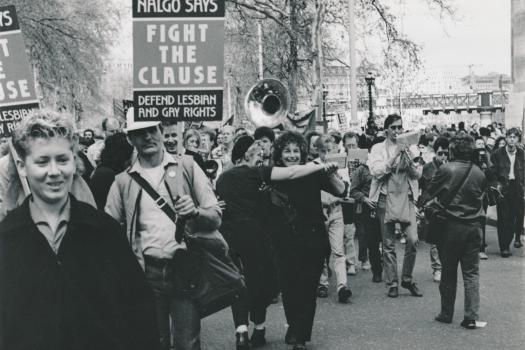
_jfif.jpg)
"Children who need to be taught traditional moral values are being taught that they have an inalienable right to be gay. All of those children are being cheated of a sound start in life." - Margaret Thatcher
THE IMPACT WAS DETRIMENTAL
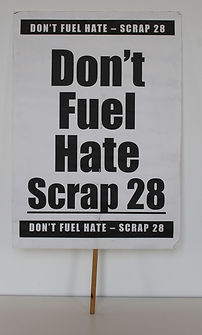

_jfif.jpg)
LGBTQ+ harassment and bullying in schools skyrocketed and because of the act, teachers felt like they couldn't intervene. Hatred is born out of ignorance and Section 28 was spoon feeding ignorance to children and adults around the country. LGBTQ+ people faced a fresh wave of hate and discrimination, as their culture, education and history was seen as too unimpressionable to be taught in schools around the country. Protestors were arrested, jailed and treated appallingly.
"Section 28 put me at a lot of risk because I didn't get sex education that was relevant to me. I didn't get any advice on what a relationship looks like. I had no models. Section 28 led me to so many insecurities." - Craig, a student during the time of Section 28
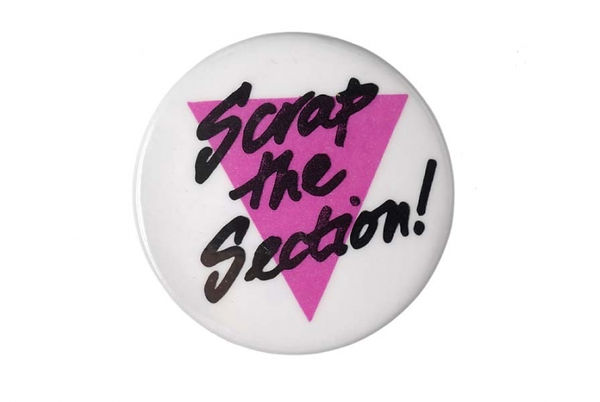
"Kids in the playground pushing you and calling you a f*g. Throwing their drinks on you. Because of Section 28, teachers felt like they couldn't intervene." - Divina De Campo
The law was stopped in Scotland in 2000 and the UK shortly followed after in 2003. Gay rights activists fought bravely and tirelessly for the abolishment of this section, and it was kept in place for way too long. Its impacts were long lasting, raising an entire generation with the belief the LGBTQ+ education was not only insignificant but also damaging to young children. It encouraged reasoning behind things like hiding LGBTQ+ representation in kids TV shows, books, the media, schools, sex education. Section 28s previous existence is why organisations like History Untold Exist. To erase LGBTQ+ education is to erase LGBTQ+ representation and only encourages discrimination and prejudice in the younger generation.
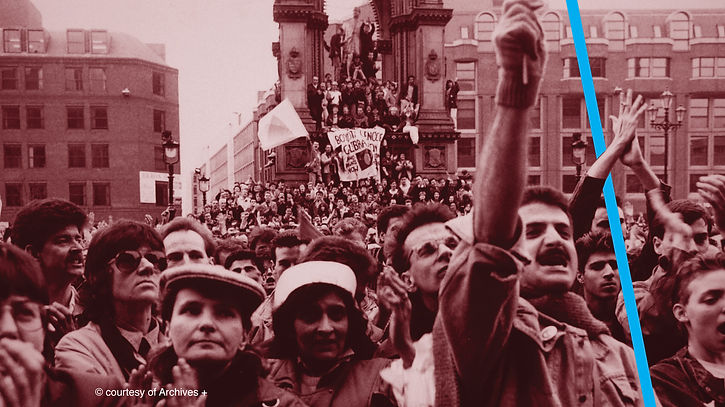
"If Section 28 and the attitudes behind it had remained then society would still believe that gay people are second class citizens and that it is right that they should be treated as second class citizens" - Sir Ian McKellen